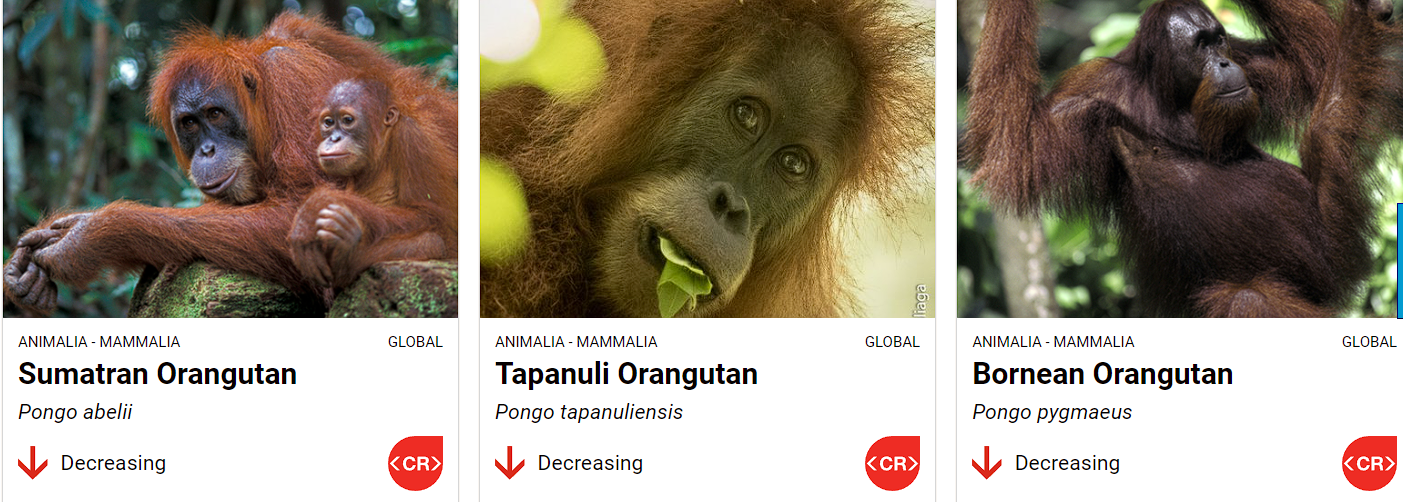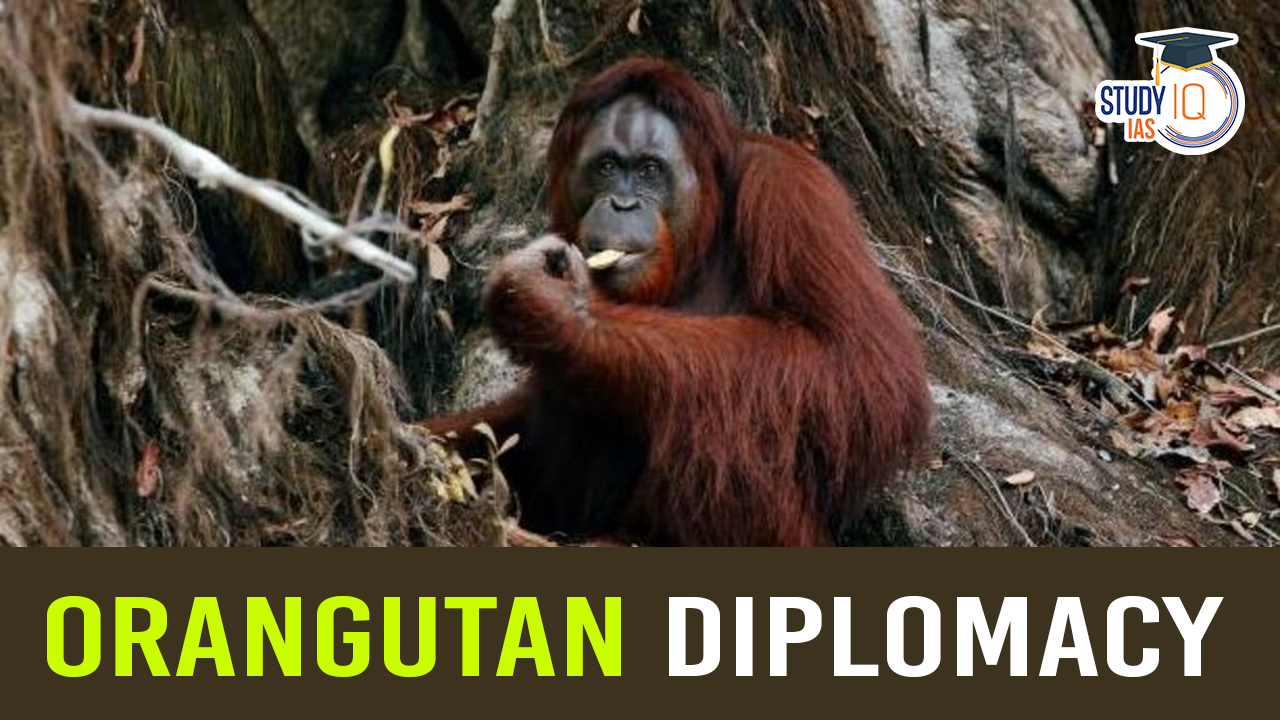Table of Contents
Context: Malaysia is planning to give orangutans as gifts to countries that buy its palm oil as part of an “orangutan diplomacy” strategy to ease concerns over the environmental impact of the commodity.
Idea of Orangutan Diplomacy
- In the realm of international diplomacy, the use of animals as symbolic gestures has a long-standing tradition.
- From the revered panda diplomacy of China to the historic gifting of Soliman the elephant, nations have leveraged the allure of wildlife to foster diplomatic ties and convey shared values.
Orangutans: Ambassadors of Conservation
- Orangutans, the iconic great apes of Asia, serve as powerful symbols of biodiversity and conservation.
- Endangered due to habitat loss and poaching, orangutans represent the urgent need for environmental stewardship and sustainable development.
- By offering orangutans as diplomatic gifts, Malaysia aims to showcase its commitment to biodiversity conservation and mitigate criticisms surrounding the palm oil industry’s environmental impact.
The Legacy of Panda Diplomacy
- China’s successful implementation of panda diplomacy has set a precedent for utilizing charismatic wildlife to strengthen diplomatic relations.
- The global appeal of giant pandas has facilitated diplomatic exchanges and softened international tensions, exemplifying the soft power of animal ambassadors.
- However, recent controversies surrounding the health and treatment of pandas in foreign zoos underscore the limitations and ethical considerations of wildlife diplomacy.
Historical Precedents and Unintended Consequences
- The historical case of Soliman the elephant highlights the potential pitfalls of using animals as diplomatic gifts.
- Malaysia’s decision to gift orangutans amidst environmental scrutiny of palm oil plantations may inadvertently evoke irony and exacerbate tensions with environmental advocacy groups.
While orangutan diplomacy may offer a novel approach to addressing environmental concerns, it must be accompanied by comprehensive conservation efforts and sustainable practices.
About Orangutans

Orangutan Species
Orangutans are great apes native to the rainforests of Indonesia and Malaysia. They are now found only in parts of Borneo and Sumatra, but during the Pleistocene they ranged throughout Southeast Asia and South China.
Bornean Orangutan:
- Scientific Name: Pongo pygmaeus
- Unique Feature: Flanged males with cheek pads
- IUCN Conservation Status: Critically Endangered
Sumatran Orangutan:
- Scientific Name: Pongo abelii
- Unique Feature: Longer facial hair
- Conservation Status: Critically Endangered
Tapanuli Orangutan:
- Scientific Name: Pongo tapanuliensis
- Conservation Status: Critically Endangered


 Shimla Agreement 1972 to 2025: From Peac...
Shimla Agreement 1972 to 2025: From Peac...
 China's Salami Slicing Tactics
China's Salami Slicing Tactics
 Serious Fraud Investigation Office (SFIO...
Serious Fraud Investigation Office (SFIO...





















